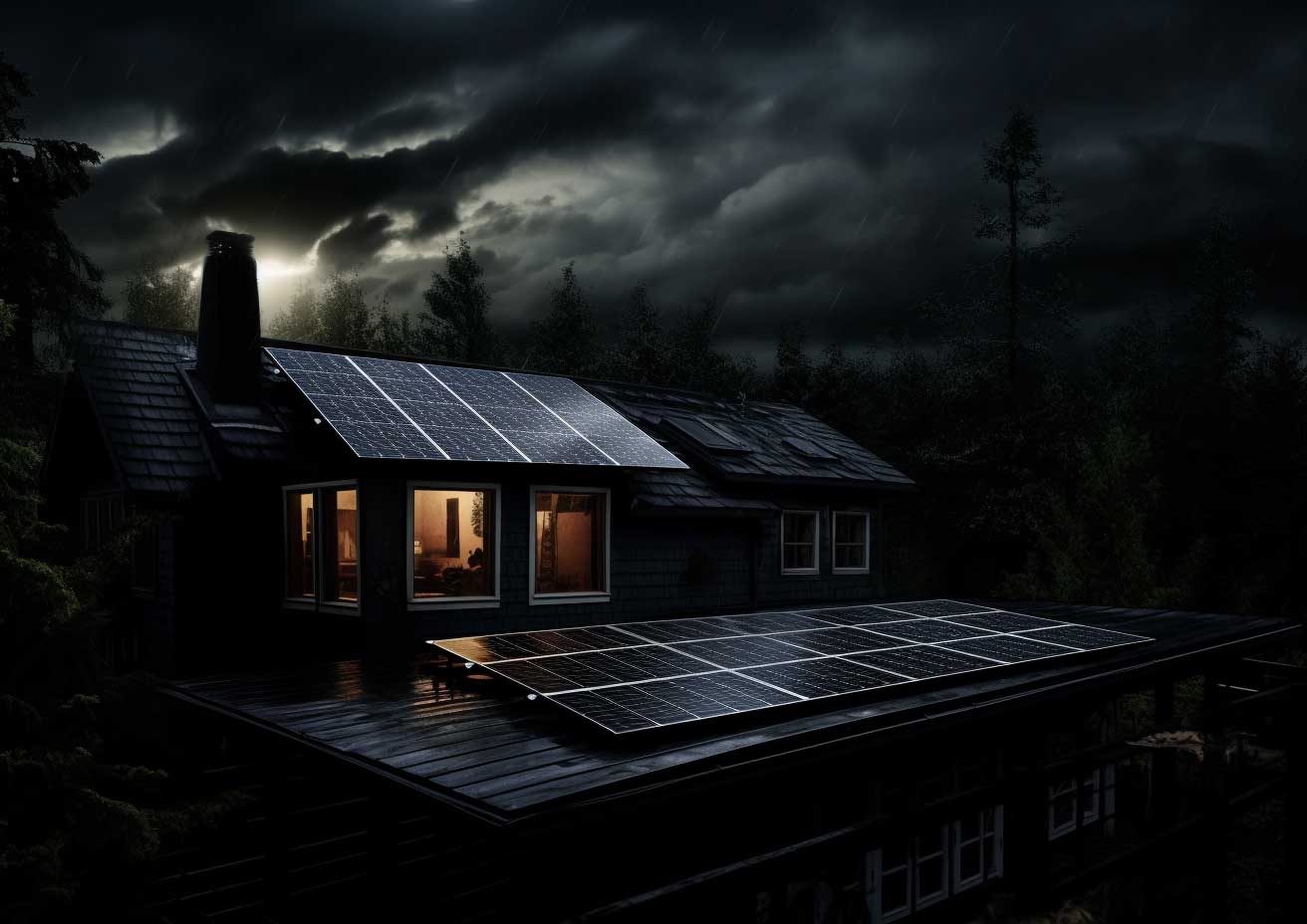As the popularity of electric vehicles (EVs) skyrockets, the demand for convenient and accessible charging solutions is soaring, too. This guide unveils the EV charger installation costs overview, equipping you with the knowledge to make informed decisions.
We’ll dive into the benefits of installing an EV charger at home, explore factors influencing the cost of an electric car charger installation, analyze pricing trends, and provide valuable tips on researching, comparing reputable installers, and accessing financing options and incentives. Get ready to embark on an electrifying journey into the world of EV charger installation costs.
The Benefits of Installing an EV Charger at Home
As more individuals switch to EVs, the importance of having an EV charger at home becomes evident. This article explores the compelling advantages of installing an EV charger at home, from convenience and cost savings to environmental contributions.
1. Convenience and Accessibility
The convenience offered by installing an EV charger at home cannot be overstated. Consider the scenario of a busy professional who relies on their electric vehicle for daily commuting. Without a home charger, they would need to factor in time to find a charging station, wait for their turn, and alter their schedule to accommodate the charging process. However, with a home EV charger, they can simply plug in their vehicle after arriving home, and it will be ready for use the following day. This seamless integration into their routine eliminates unnecessary stress and time spent seeking charging stations.
2. Cost Savings on Energy and Fuel
The financial advantages of home EV charging become apparent over time. Let’s compare the cost of electricity and gasoline: on average, EVs are significantly more energy-efficient than traditional internal combustion engine vehicles. Electricity costs per mile can be substantially lower than gasoline’s equivalent distance covered. This disparity is even more pronounced when electricity rates are cheaper during off-peak hours.

3. Contribution to a Greener Environment
The environmental impact of EVs becomes evident when we analyze the reduction in greenhouse gas emissions. Let’s take a real-world example: in the United States, the average gasoline-powered vehicle emits about 4.6 metric tons of carbon dioxide (CO2) per year. In contrast, a fully electric vehicle produces zero tailpipe emissions, significantly reducing CO2 emissions.
Furthermore, the source of electricity used for charging also plays a crucial role in determining the overall environmental impact of EVs. The emission reduction might be less pronounced in regions where the electricity grid relies heavily on fossil fuels. However, areas with a higher proportion of renewable energy sources in their grid, like solar or wind, offer even greater environmental benefits.
For instance, Norway is a standout example, with over 95% of its electricity generation coming from renewable sources. The country’s commitment to EV adoption and clean energy has dramatically reduced carbon emissions from transportation.
Factors Affecting the Cost to Install an EV Charger at Home
When it comes to an EV charger home installation cost, it varies depending on several factors. Let’s take a closer look at these factors with real-world examples to provide a clearer understanding of how they can impact the cost of EV charger installation:
Level of charging
- Level 1 charging: This basic charging level utilizes a standard 120-volt electrical outlet. Since it typically doesn’t require any additional equipment or upgrades, the installation costs are minimal.
- Level 2 charging: With a higher voltage of 240 volts, Level 2 charging offers faster charging speeds. However, it usually necessitates the installation of a dedicated 240-volt circuit and an EV charging station. This upgrade can range from a few hundred to a few thousand dollars, depending on the complexity of the electrical work required.
- DC fast charging: DC fast chargers are known for their rapid charging capabilities, providing a significant charge quickly. These chargers require specialized equipment and more extensive electrical infrastructure, making them the most expensive installation option. The EV charger alone can range from $10,000 to $50,000, depending on the power output – this does not factor in installation costs and site preparation requirements.
Required electrical upgrades
Installing an electric vehicle (EV) charger at home offers undeniable benefits. Still, it’s crucial to be aware that certain electrical upgrades might be required to guarantee a safe and efficient charging experience. Firstly, consider your home’s electrical panel capacity. Older homes or those with limited capacity might need an upgrade to accommodate the power demand of an EV charger. These chargers typically require a dedicated 240-volt circuit, necessitating a larger electrical panel if your current one is nearing its limit.
Additionally, a dedicated circuit is essential to ensure a consistent and reliable power supply for the charger, avoiding issues arising from sharing the circuit with other heavy appliances or outlets. If such a circuit doesn’t exist in your chosen charging location, an electrician must install one to ensure optimal charging performance.

Wiring and conduit are equally important considerations. The wiring and conduit used for the connection between the EV charger and the electrical panel should be capable of handling the load and should adhere to safety codes. Proper grounding and adherence to electrical codes are critical to prevent hazards and ensure safety. If your chosen EV charger offers advanced features like load management and smart charging, your electrical system might require specific components to support these capabilities.
Distance from the electrical panel to the charging location
The distance between the electrical panel and the chosen charging location can impact installation costs. Longer distances may require additional materials such as wiring, conduits, or trenching, which can increase the total installation expenses. For instance, installing a charging station in a detached garage far from the main electrical panel may require additional materials and labor, leading to higher costs.
Permitting and inspections
Obtaining permits and undergoing inspections are typically required for EV charger installations. Permit fees can vary depending on the jurisdiction, ranging from $50 to a few hundred dollars. Local building codes may also necessitate modifications or upgrades to specific electrical components, impacting the overall installation costs.
Additional features and accessories
EV chargers often come with additional features and accessories that can influence the installation costs. For example, opting for a charger with Wi-Fi connectivity or smart charging capabilities may incur higher upfront costs but can provide enhanced functionality and convenience.
Average EV Charger EV Charger Installation Cost
As electric vehicles (EVs) gain traction as a sustainable transportation choice, the need for accessible and convenient charging options becomes increasingly essential. When considering installing an EV charger at home, understanding the average installation costs is critical for informed decision-making.
- Level 1 EV Charger: The cost for a Level 1 EV charger is minimal, as it essentially involves using the existing electrical infrastructure in your home. The main expense might be purchasing a compatible charging cord if it needs to be included with your vehicle. A Level 1 charger is included when you buy a new EV.
- Level 2 EV Charger: Level 2 EV chargers are the most common choice for home installations due to their faster charging speeds and broader compatibility. The cost of installing a car charger at home can vary widely based on factors such as brand, charging speed, and additional features. A basic Level 2 charger can cost around $400 to $1000 on the lower end. These chargers typically provide charging speeds ranging from 16 to 32 amps, allowing for a full charge in a few hours.
- Mid-range Level 2 chargers with enhanced features like Wi-Fi connectivity and smart charging capabilities can range from $500 to $1,000. These features allow you to monitor and control your charging remotely, optimize charging times, and integrate with home energy management systems.
- At the higher end of the spectrum, premium Level 2 chargers with advanced features and higher charging speeds can cost over $1,000. These chargers might offer charging speeds of 40 amps or more, significantly reducing charging times and providing more flexibility.
- Level 3 DC Fast Charger: Installation costs can range from $20,000 to $100,000, depending on power output, site preparation, and additional electrical upgrades. DC fast chargers are not recommended and, in most situations, impossible due to their high voltage requirements.
Tips for Finding a Reliable and Affordable EV Charger Installation Company
Investing in an electric vehicle (EV) charger installation is a significant step towards embracing sustainable transportation, and the choice of installation company can significantly influence the outcome of this endeavor.Here’s an in-depth look at how to find a trustworthy and cost-effective EV charger installation company:
Researching and Vetting Installation Companies
When starting your search, compile a list of potential installation companies nearby. A crucial aspect is to verify their credentials and industry affiliations. Companies certified by reputable organizations demonstrate their commitment to industry standards and best practices. Additionally, assess their experience and specialization. Companies with a proven track record of EV charger installations are likelier to have the expertise required for a successful setup.
Ready to take the next step towards sustainable transportation with a reliable EV charger installation? Look no further! WattLogic is here to provide you with a seamless, efficient, and cost-effective installation process. Don’t miss the opportunity to get your personalized estimate quickly.
Requesting References and Customer Testimonials
Once you’ve narrowed your options, ask each company for references from previous clients. Speaking directly with these clients can provide candid insights into the installation process, the professionalism of the company, and any challenges they encounter. Ask about the company’s communication, punctuality, and how they handled unexpected issues. Additionally, inquire about case studies or success stories they can share – these can provide valuable examples of their capabilities.
Reading Online Reviews and Checking Ratings
Online reviews and ratings offer a treasure trove of information about installation companies. While positive reviews are encouraging, don’t disregard negative feedback either. Look for review trends, attention to communication, work quality, and schedule adherence. Multiple consistent positive reviews are a strong indicator of a reliable company. Platforms like the Better Business Bureau (BBB) can provide insight into the company’s reputation and any official complaints filed.
Comparing Warranties and After-Sales Service
The quality of a company’s work is often reflected in its warranties. When obtaining quotes, inquire about the warranty coverage for labor and materials. A company that offers a comprehensive warranty demonstrates confidence in its workmanship and a commitment to addressing any potential issues that may arise post-installation. Additionally, inquire about their after-sales service. A company that offers ongoing support and assistance can be invaluable, especially if you have questions about using or maintaining your EV charger.
Financing and Incentives for EV Charger Installation
As electric vehicles (EVs) continue to surge in popularity, governments, utility companies, and organizations recognize the need to support the installation of EV chargers to encourage their widespread adoption. These financial incentives, rebate programs, and financing options make the transition to EVs more accessible and economical for individuals.
Federal, State, and Local Incentives
In the United States, the federal government offers a tax credit of up to 30% of the cost (capped at $1,000) for residential EV charger installations. If you spend $2,000 on the installation, you could receive a tax credit of $600, significantly reducing your out-of-pocket expenses. Several states have also established their incentives. For example, California offers rebates for EV charger installations through the Clean Vehicle Rebate Project. Local governments, such as those in Colorado, offer additional rebates, creating a layered financial support system that can substantially offset installation costs.
Utility Company Programs and Rebates
Utility companies nationwide promote EV adoption by providing their customers with various incentives. For instance, Pacific Gas and Electric (PG&E) in California offers a $500 rebate for installing a Level 2 home charger. Similarly, Xcel Energy in Colorado provides up to $500 rebates for eligible customers who install a residential charger. These utility company rebates can significantly reduce the upfront cost of installing an EV charger and make the transition to EV ownership more appealing.

Financing Options and Payment Plans
Many EV charger manufacturers and installation companies offer financing options for different financial situations. For example, EVBox, a leading EV charging solutions provider, offers financing plans that allow customers to spread the installation cost over time. Similarly, banks and credit unions often provide personal loans or lines of credit that can be used to cover EV charger installation costs. Individuals can embrace EV ownership without straining their budgets by breaking down the cost into manageable monthly payments.
Final Thoughts on Home EV Charger Installation Cost
Installing a home EV charger with the expertise of companies like WattLogic is an investment in both personal convenience and the health of our planet. With each installation, WattLogic is helping homeowners contribute to the reduction of fossil fuel dependence, lower greenhouse gas emissions, and support the transition to sustainable living. Our services enable individuals to join a larger movement that ensures future generations inherit cleaner air and quieter streets.
WattLogic streamlines your estimate experience with a straightforward automated process. Answer some brief questions, upload your images, and promptly receive a detailed quote from us.
WattLogic’s role in the electric vehicle movement is critical as it facilitates the integration of EV chargers into homes, shaping the future of our transportation infrastructure. By choosing WattLogic for your next home EV charger installation, you are equipping yourself with the benefits of electric mobility and positioning themselves as proactive agents in the global push towards an environmentally conscious and economically viable transportation ecosystem.




